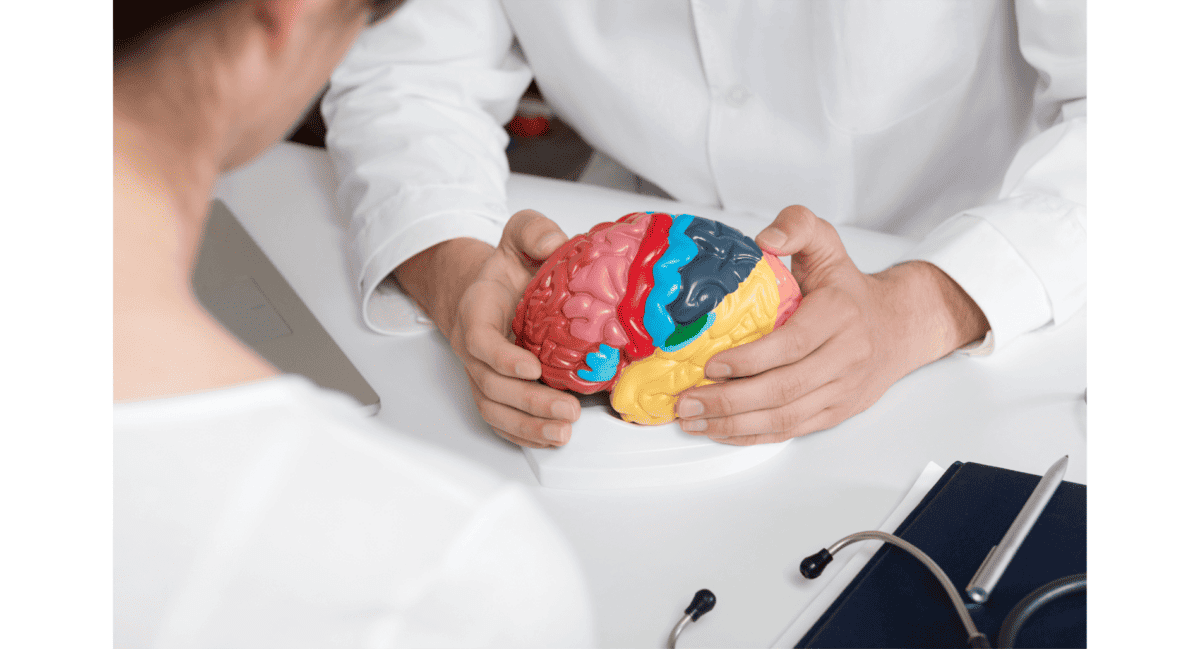- Volunteering for Hearing Health Causes - May 27, 2025
- Questions to Ask During Your Hearing Health Appointment - May 16, 2025
- Exploring Alternative Therapies for Hearing Loss - May 6, 2025
When we think about hearing health, we often think about noise exposure, wearing earplugs, or using hearing aids. However, emerging research suggests that brain exercises can play a role in maintaining and improving auditory function! Here’s what we know about the science behind brain exercises for hearing health and the practical strategies you can use to enhance auditory processing.
Understanding the Brain-Hearing Connection
The brain and the ears work together to help you hear. While the ears translate sound waves into electrical signals, the brain is what translates these signals into meaningful sounds and language. As we age, the brain’s ability to process auditory information may decline due to various factors such as changes in neural pathways and cognitive function.
Brain exercises are designed to stimulate neural activity in areas of the brain responsible for auditory processing. By engaging in targeted cognitive activities, you can enhance your brain’s ability to decode and interpret sounds, ultimately improving your overall hearing health.
The Science Behind Brain Exercises
Research has shown that certain types of brain exercises can have a significant impact on auditory function. For example, studies have found that activities such as listening to complex auditory stimuli, engaging in speech-in-noise training, and practicing auditory memory tasks can lead to improvements in speech understanding and sound discrimination.
Meanwhile, brain exercises that challenge cognitive functions such as attention, memory, and processing speed can indirectly benefit hearing health. These exercises promote neuroplasticity, the brain’s ability to reorganize and adapt in response to new stimuli, which can enhance auditory processing abilities.
Brain Exercises You Can Try at Home
Here’s how you can incorporate brain exercises into your daily routines:
- Listening to Audiobooks and Podcasts: Listening to audiobooks and podcasts is a great way to stimulate auditory processing while engaging in cognitive activities such as comprehension and memory recall. Choose content that interests you and challenge yourself with complex narratives or educational topics.
- Playing Music Instruments: Playing a musical instrument not only provides auditory stimulation but also engages motor skills and cognitive functions such as memory and attention. Whether it’s learning a new instrument or practicing familiar tunes, musical activities can enhance brain health and hearing abilities.
- Learning a New Language: Learning a new language requires active engagement of auditory processing and memory. Whether through online courses, language apps, or immersion programs, exposing yourself to new linguistic challenges can sharpen your listening skills and enhance cognitive function.
- Engaging in Mindfulness Meditation: Mindfulness and meditation practices involve focusing attention on the present moment, which can improve concentration and reduce stress. Mindfulness exercises may indirectly benefit auditory processing and hearing health by enhancing attentional control and reducing cognitive load.
- Solving Puzzles and Brain Games: Building puzzles, or trying your hand at crossword puzzles, Sudoku, and other brain games can give your brain a challenge. This boosts cognitive functions such as problem-solving, attention, and memory. These activities promote neuroplasticity and cognitive flexibility, supporting overall brain health and hearing function.
- Practicing Active Listening: Consciously practicing active listening involves fully engaging with the sounds and conversations around you. Focus on understanding speech in noisy environments, identifying subtle auditory cues, and maintaining attention during conversations. Active listening exercises can improve auditory discrimination and speech understanding abilities.
- Incorporating Physical Exercise: Regular physical exercise is linked to improved cognitive function and brain health. Activities such as walking, jogging, or yoga can enhance blood flow to the brain, support neurogenesis (the growth of new brain cells), and promote overall brain health. This will indirectly benefit hearing function.
- Seeking Professional Guidance: For personalized brain exercise recommendations tailored to your hearing health needs, consult with a hearing health specialist. They can assess your auditory function, provide guidance on effective brain exercise strategies, and monitor your progress over time.
Visit Us for Ongoing Support
Incorporating brain exercises into your daily routine can be a powerful tool for optimizing hearing health and cognitive function. By engaging in activities that challenge and stimulate the brain, you can enhance auditory processing abilities, improve speech understanding, and support overall brain health.
Take the first step towards better hearing health and visit us for more support. Your brain will thank you, and your ears will reap the rewards.

